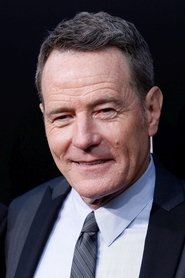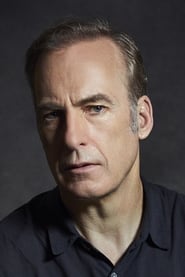
Ask Your Own Question
What is the plot?
The episode "Felina" opens with a flashback to the previous events of the series, showing Walter White in a car, reflecting on his life. He is in a Chrysler minivan, parked in a snowy landscape, and he is visibly older and more haggard. He retrieves a gun from the glove compartment, indicating his intent to confront his past.
Walter drives to a remote location where he approaches a group of men who are working on a meth lab. He is met with hostility, but he calmly reveals that he has a machine gun hidden in the trunk of his car. He activates the gun remotely, and it begins firing at the men, creating chaos. Walter watches as the gun takes out several of the men, showcasing his cold determination and the lengths he will go to reclaim his power.
After the gunfire subsides, Walter confronts the remaining members of the gang, including Todd Alquist. He demands to know where Jesse Pinkman is being held. Todd, who is visibly shaken, tries to negotiate, but Walter is resolute. He kills Todd in cold blood, demonstrating his transformation into a ruthless figure. Walter then finds Jesse, who is being held captive and forced to cook meth. Jesse is initially hesitant to trust Walter, but Walter assures him that he is there to help.
Walter and Jesse share a tense reunion, filled with unspoken emotions. Walter hands Jesse a gun and tells him to kill him if he wants, but Jesse refuses, showing his internal conflict. Instead, Walter tells Jesse to leave and start a new life, urging him to escape the cycle of violence and crime. Jesse, still traumatized by his experiences, drives away, leaving Walter to face the consequences of his actions alone.
Walter then returns to Albuquerque, where he visits his former home. He finds it abandoned and in disrepair, a stark reminder of what he has lost. He reflects on his life choices and the impact they have had on his family. He then goes to a bar where he meets with his former business partners, Elliott and Gretchen Schwartz. Walter confronts them about the money they owe him and makes it clear that he will not let them forget his contributions to their success.
In a final act of defiance, Walter visits his family home one last time. He sees his son, Flynn, who is now estranged from him. Walter tries to connect with Flynn, but Flynn is angry and hurt, refusing to engage with his father. Walter's desperation is palpable as he realizes the extent of the damage he has caused to his family.
The climax of the episode occurs when Walter returns to the meth lab, where he confronts the remaining gang members. He is armed and ready for a final showdown. The tension builds as Walter faces off against the gang, and in a series of quick, violent exchanges, he takes them down one by one. The fight is brutal, showcasing Walter's transformation into a hardened criminal.
In the aftermath of the confrontation, Walter is left alone in the lab, surrounded by the remnants of his empire. He takes a moment to reflect on his life, filled with a mix of pride and regret. The episode concludes with Walter succumbing to his injuries, lying on the floor of the lab, surrounded by the equipment that once symbolized his power. The camera pans out, leaving Walter's fate ambiguous as the screen fades to black.
What is the ending?
In the ending of "Breaking Bad," titled "Felina," Walter White returns to Albuquerque to settle his affairs. He confronts his former business partners, rescues Jesse Pinkman from captivity, and ultimately faces a violent showdown with the neo-Nazi gang. Walter dies from a gunshot wound in the meth lab, but he finds a sense of closure in his final moments.
The episode opens with Walter White, now a fugitive, driving through the snowy landscape of New Hampshire. He is gaunt and weary, reflecting the toll that his life of crime has taken on him. As he drives, he listens to the song "El Paso" by Marty Robbins, which foreshadows his return to Albuquerque and the inevitable confrontation that awaits him.
Walter arrives in Albuquerque, where he first visits the home of his former business partners, Elliott and Gretchen Schwartz. He confronts them about the money he left for his children, ensuring they will give it to them. Walter's demeanor is calm yet menacing, showcasing his desperation to secure his family's future despite the chaos he has caused.
Next, Walter visits the car wash he once owned, where he sees his former employee, Bogdan. Walter's presence is intimidating, and he uses the opportunity to assert his dominance, reminding Bogdan of his past authority. This scene highlights Walter's transformation from a meek chemistry teacher to a ruthless drug lord.
The narrative shifts to Jesse Pinkman, who is being held captive by the neo-Nazi gang. He is forced to cook meth under duress, showcasing his despair and hopelessness. Jesse's emotional state is one of deep trauma, reflecting the consequences of Walter's actions on his life.
Walter then prepares for his final confrontation. He constructs a makeshift machine gun hidden in the trunk of his car, a symbol of his resourcefulness and determination to reclaim control. As he drives to the gang's compound, the tension builds, underscoring the stakes of his mission.
Upon arriving at the compound, Walter confronts the gang. He uses the machine gun to create chaos, killing several members of the gang in a swift and brutal manner. In the midst of the gunfire, he finds Jesse, who is visibly traumatized and conflicted. Walter offers Jesse the chance to kill him, but Jesse refuses, telling Walter to do it himself if he wants to die.
In the final moments, Walter confronts Jack Welker, the leader of the gang. A tense standoff ensues, and Walter is shot in the process. As he lies dying in the meth lab, he experiences a moment of clarity. He walks through the lab, touching the equipment that symbolizes his empire. The scene is poignant, filled with a sense of loss and reflection on his choices.
Walter's fate is sealed as he succumbs to his injuries, lying on the floor of the lab. The camera lingers on his face, capturing the complexity of his character--both the man he was and the monster he became. The episode closes with a haunting shot of the lab, now empty, as the sirens of approaching law enforcement echo in the distance.
In summary, Walter White's journey concludes with his death, leaving behind a legacy of destruction and a fractured family. Jesse Pinkman, though physically free, is left to grapple with the emotional scars of their shared past. The episode encapsulates the tragic consequences of ambition and the moral decay that accompanies the pursuit of power.
Is there a post-credit scene?
In "Felina," the series finale of Breaking Bad, there is no post-credit scene. The episode concludes with a powerful and definitive ending to Walter White's story. After a tense and climactic series of events, the final moments focus on Walter in the meth lab, where he takes in the machinery and the remnants of his empire. The camera lingers on him as he collapses to the ground, succumbing to his injuries, with the sound of police sirens approaching in the distance. The scene fades to black, marking the end of the series without any additional scenes or credits. The absence of a post-credit scene emphasizes the finality of Walter's journey and the consequences of his choices throughout the series.
What happens to Walter White in the final episode 'Felina'?
In the final episode 'Felina', Walter White returns to Albuquerque after months of hiding. He visits his former business partners, Elliott and Gretchen Schwartz, to ensure they will give his money to his son, Walt Jr. He then confronts Lydia Rodarte-Quayle and Todd Alquist at a diner, poisoning Lydia with ricin. Walter's final act is to rescue Jesse Pinkman from captivity, leading to a violent confrontation with the white supremacist gang holding him. In the end, Walter is mortally wounded but finds a moment of peace as he admires the meth lab he built.
How does Jesse Pinkman escape in 'Felina'?
In 'Felina', Jesse Pinkman is held captive by a white supremacist gang, forced to cook meth. Walter White arrives at the compound and uses an automated machine gun hidden in the trunk of his car to kill most of the gang members. During the chaos, Jesse is freed from his chains by Walter. When Walter offers Jesse the chance to kill him, Jesse refuses, telling Walter to do it himself if he wants to die, and drives away, finally escaping his torment.
What is the significance of the title 'Felina'?
The title 'Felina' is a reference to the song 'El Paso' by Marty Robbins, which tells the story of a cowboy who returns to a town for a lost love. In the episode, Walter White's journey back to Albuquerque is driven by his desire to tie up loose ends and confront his past, particularly his love for his family and the consequences of his actions. The name 'Felina' also symbolizes the duality of love and danger, reflecting Walter's complex relationship with his family and his criminal life.
What role does ricin play in 'Felina'?
In 'Felina', ricin is used by Walter White as a method of assassination. He secretly prepares a ricin capsule and uses it to poison Lydia Rodarte-Quayle during a meeting at a diner. Walter's calculated use of ricin highlights his transformation into a cold and ruthless figure, willing to eliminate anyone who poses a threat to his legacy and his family's future.
How does Walter White's relationship with his family conclude in 'Felina'?
In 'Felina', Walter White's relationship with his family reaches a tragic conclusion. He makes a final visit to his wife, Skyler, to give her the money he earned from his drug empire, ensuring that she and their children will be taken care of. However, the encounter is tense and filled with unresolved emotions, as Skyler is aware of the destruction Walter has caused. Walter's final moments with his son, Walt Jr., are brief and filled with regret, as he chooses to leave without saying goodbye, emphasizing the irreparable damage his choices have inflicted on his family.
Is this family friendly?
"Breaking Bad," particularly in its final episode "Felina," is not considered family-friendly. The series contains several potentially objectionable or upsetting aspects that may affect children or sensitive viewers:
-
Violence: The episode features intense scenes of gunfire and physical confrontations, including the use of firearms and the aftermath of violent encounters.
-
Death: There are significant themes surrounding mortality, with characters facing life-and-death situations, which can be distressing.
-
Drug Use: The series revolves around the illegal drug trade, and while the episode may not explicitly show drug use, the implications and consequences of drug-related activities are prevalent.
-
Emotional Turmoil: Characters experience profound emotional distress, including feelings of betrayal, loss, and desperation, which may be heavy for younger viewers.
-
Mature Themes: The episode deals with themes of revenge, morality, and the consequences of one's choices, which may be complex and unsettling for children.
Overall, the content is geared towards an adult audience and contains elements that could be disturbing for younger viewers or those sensitive to such themes.


















